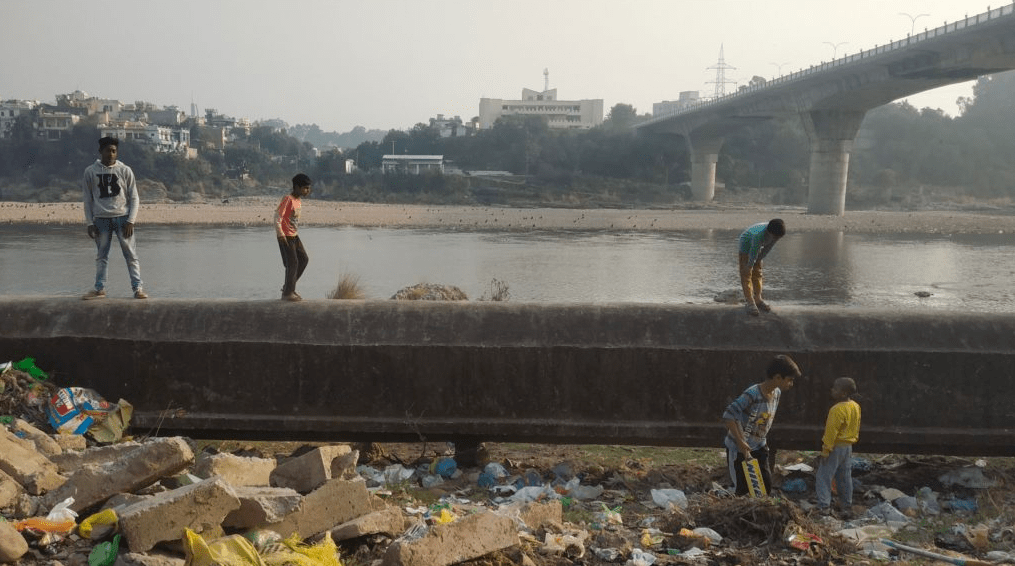Tawi river is a tributary of Chenab river and is considered holy by many Hindus. It flows from India to Pakistan through Jammu city. But like many other rivers in India, Tawi is very polluted and its water is often mixed with wastes of plastic, clothes and other solid materials.

When government turned a blind eye towards this issue, people of Jammu formed groups of volunteers and decided to clean it by themselves. Many environmental groups formed a movement called Friends of River Tawi (FORT) to clean the holy river. This clean-up drive is being held for every Sunday for the previous six weeks.
Ananya, an interior design student and volunteer, says that a huge amount of construction waste is dumped along the Tawi. Other than that, volunteers find cloth, sanitary napkins and plastic waste in river streams. These polluted water streams directly merge with the river. Another volunteer says that the Jammu Municipal Corporation (JMC) doesn’t seem very much enthusiastic about the issue. Volunteers have to repeatedly call the authorities asking them to send garbage trucks to pick the collected waste. They carry the waste to the side of the street so that JMC can pick it up the next day.
Other than solid waste, untreated sewage also pollutes the Tawi river as it runs through Jammu. The River Rejuvenation Committee of Jammu and Kashmir said in 2018 that the city discharges 75 million litres per day of untreated sewage water which goes directly into the river.
The committee recommended that three existing sewage treatment plants (STPs) in Jammu should be made functional in order to tackle the problem. These STPs were scheduled to be completed by December 2019. However, November 2020 data from the pollution control board of J&K shows that the condition is almost the same as it used to be. There are a total of five municipal STPs in Jammu, three of which do not comply with required standards.
The Central Pollution Control Board of India has set a Biochemical oxygen demand (BOD) of less than 3 milligrams/litre for river water to be fit for bathing. In 2020, the area of the Tawi river around Bhagwati Nagar area showed the highest levels of BOD, mostly above 5 mg/l and even reached 8.5 mg/l in February.
Any negative affect in quantity and quality of the Tawi affects both Indians and Pakistanis who depend on the river. Under the Indus Water Treaty (IWT), both the nations share water of the Indus river system.